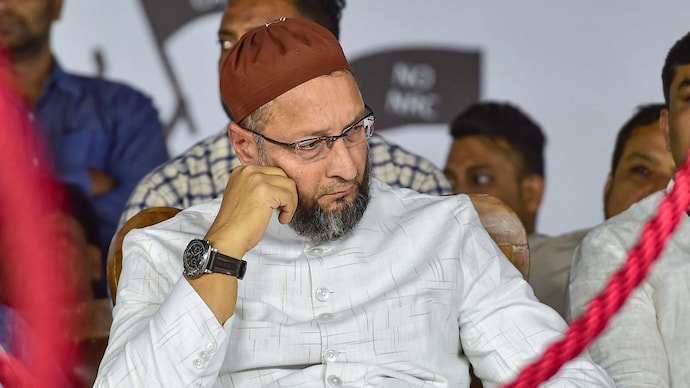In a bold assertion during a Lok Sabha session, Asaduddin Owaisi, the leader of the All India Majlis-e-Ittehadul Muslimeen (AIMIM), declared that the Babri Masjid still exists at the Ram Temple site. Owaisi’s statement reflects ongoing tensions and unresolved disputes surrounding the historic site in Ayodhya, Uttar Pradesh.
The Babri Masjid-Ram Janmabhoomi dispute has been a longstanding flashpoint in Indian politics, marked by religious, cultural, and legal complexities. The demolition of the Babri Masjid in 1992 by Hindu nationalists sparked widespread violence and communal riots, leading to deep-seated divisions and legal battles that have persisted for decades.

SOURCE:- NEWS18
Owaisi’s assertion challenges the narrative of Hindu nationalist groups who advocate for the construction of a Ram Temple at the site, arguing that it is the birthplace of Lord Ram. By stating that the Babri Masjid still exists, Owaisi highlights the ongoing dispute over the ownership and status of the site, emphasizing the historical and religious significance attributed to it by Muslims in India.
SOURCE:- INDIA TODAY
Furthermore, Owaisi’s statement reflects the broader political and ideological contestation surrounding identity, religion, and nationalism in India. The Babri Masjid-Ram Janmabhoomi issue has been instrumentalized by various political parties and groups to mobilize support, consolidate power, and advance their agendas, contributing to polarization and communal tensions in the country.
Owaisi’s declaration in the Lok Sabha is likely to reignite debates and discussions on the Babri Masjid-Ram Janmabhoomi dispute, drawing attention to the unresolved nature of the issue and the need for a peaceful and equitable resolution. It underscores the importance of dialogue, reconciliation, and respect for the rule of law in addressing contentious historical grievances and promoting communal harmony in India.
Moreover, Owaisi’s statement underscores the significance of the Indian Parliament as a forum for democratic debate and deliberation on issues of national importance. By expressing his views in the Lok Sabha, Owaisi is exercising his constitutional right to freedom of speech and expression, while also fulfilling his duty as an elected representative to voice the concerns and perspectives of his constituents.
However, Owaisi’s assertion is likely to face criticism and opposition from Hindu nationalist groups and political parties advocating for the construction of a Ram Temple at the site. The Babri Masjid-Ram Janmabhoomi dispute remains a deeply emotive and divisive issue in Indian society, evoking strong sentiments and conflicting interpretations of history, religion, and culture.
Asaduddin Owaisi’s declaration in the Lok Sabha that the Babri Masjid still exists at the Ram Temple site reflects the ongoing complexities and tensions surrounding the Babri Masjid-Ram Janmabhoomi dispute. His statement underscores the need for a peaceful and equitable resolution to the issue, based on dialogue, mutual respect, and adherence to the principles of justice and rule of law.
Share your views in the comments
